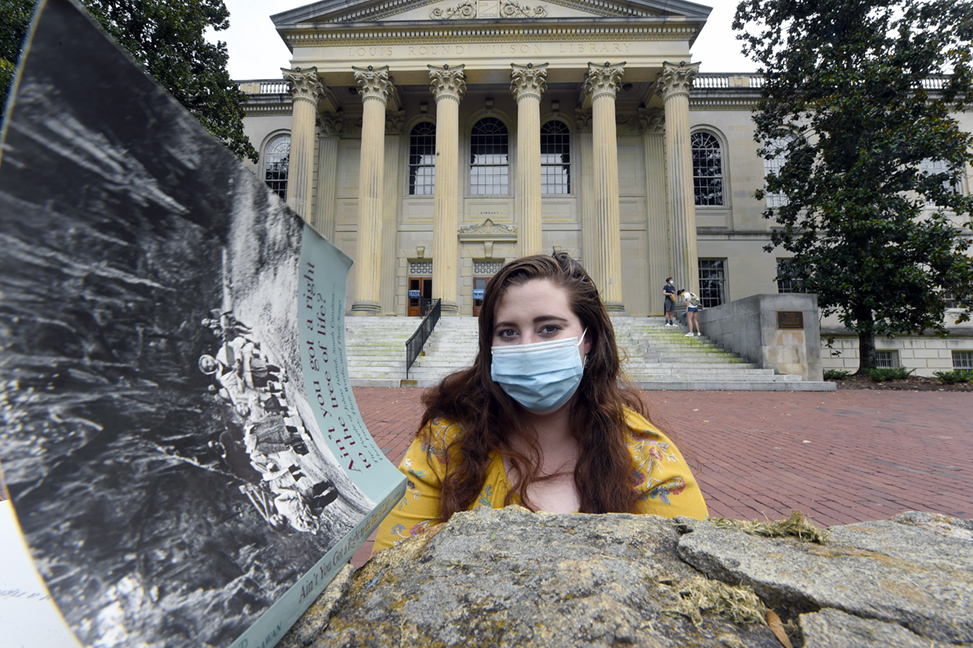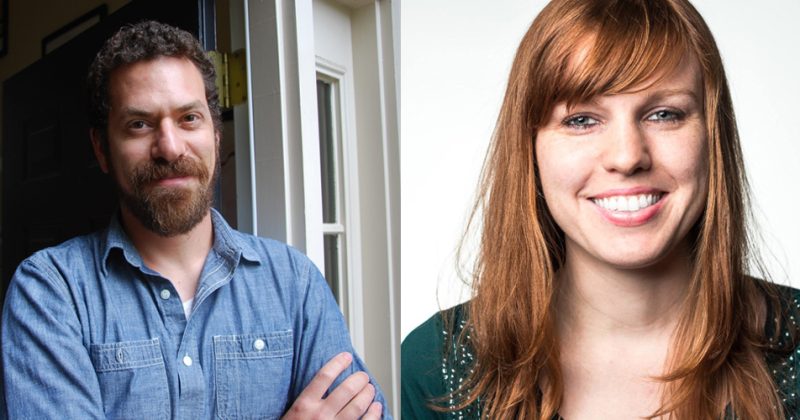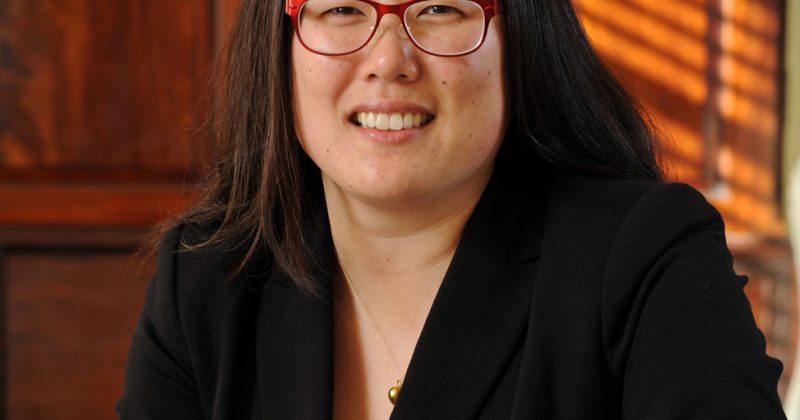
Madd Heartley outside Wilson Library with the Carawans’ book, "Ain’t You Got a Right to the Tree of Life?" (photo by Donn Young)
Madd Heartley turned her interest in folk music into a project that explores the impact of civil rights activists and folk musicians Guy and Candie Carawan on the development of Johns Island, South Carolina.
Johns Island is part of the Sea Islands, a chain of about 100 low-lying islands off the Atlantic Ocean that stretch from South Carolina to Georgia to Florida. The resort communities of Kiawah, Hilton Head and Seabrook are among the more well-known South Carolina Sea Islands. Before the Civil War, many of these islands featured enormous cotton and rice plantations.
The junior American studies major from Charlotte, who also plans to go to nursing school, received a Southern Futures Award to support her undergraduate research. She relied heavily on the Guy and Candie Carawan Collection, part of the Southern Folklife Collection in Wilson Library.
At the 1964 Newport Folk Music Festival in Rhode Island, the gospel singers of Moving Star Hall Church of Johns Island performed alongside Bob Dylan, Pete Seeger and Joan Baez. The Moving Star Hall singers’ appearance with the festival’s all-star lineup was arranged by the Carawans, who worked to document the African American heritage of the South Carolina low country. The Carawans wrote a book, Ain’t You Got a Right to the Tree of Life?: The People of Johns Island, South Carolina — Their Faces, Their Words and Their Songs.
As the gospel group performed religious hymns and shared stories of Johns Island’s Gullah culture, they and the Carawans brought newfound attention to the region. But years later, the island would struggle to maintain its unique culture as it became a popular beach destination and a hot spot for developers.
Heartley’s case study raises significant historical questions about the attempt to preserve and commodify Black culture within the context of free market capitalism. She is working to finalize her research paper, under the guidance of associate professor of history Erik Gellman, with the hope of submitting it to an academic journal.
“I wanted to contextualize how much did the Carawans’ perspective as white middle class activists help or harm the people of Johns Island?” Heartley said. “Their intent was good, but it begs the question that if you don’t focus on economic stability and job and wealth equity of the local community, are you being exploitive? Are you doing the best with the resources you have?
“With cultural preservation, we need to think about how can we preserve culture in a way that’s organic and that also ensures we’re protecting the economic rights and lives of the local people?”
Today, the Gullah Geechee Cultural Heritage Corridor Commission makes its home on Johns Island and works to protect the culture of the African-descended people of the Sea Islands.
Heartley said she has always been interested in folk music and how it can be used as a tool for conversation and cultural change.
“Music gives you a window into the culture of the times,” she said, citing as an example the unofficial civil rights anthem “We Shall Overcome,” which the Carawans helped to popularize.
Heartley calls her first foray into doing in-depth undergraduate research “an awesome experience.”
“Having the tools to do research is a valuable skill set,” she said. “It helped me to understand more about my own history with the South and how much there is still for me to know and learn. Understanding the past has a lasting impact on how we see the world today.”
Learn more about Southern Futures.
By Kim Weaver Spurr ’88
Read more stories about Southern Futures:
Southern Futures: Diverse voices for a changing region
Southern Futures: Exploring intersections of class and race in Green Valley
Southern Futures: Vulnerable lives on the Matanzas River
Southern Futures: Voices of resilience and recovery in Robeson County
Southern Futures: Chief Hope Officer
Poet Tyree Daye was featured in a Southern Futures podcast.
Published in the Fall 2020 issue | Features
Read More

Two take on new humanities roles
Seth Kotch, associate professor of digital humanities in American studies,…



